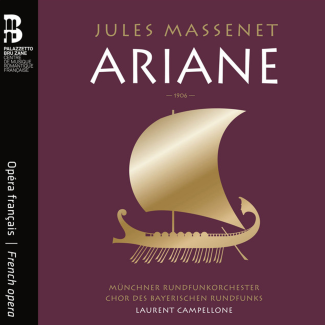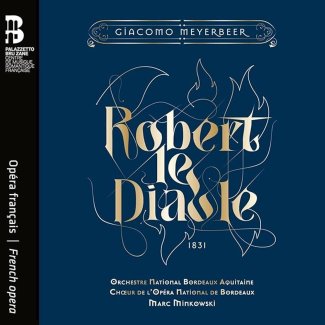


Amina Edris
Links
Download Assets
“…beguiling sensitivity, unfailing accuracy and a tone of dark steeliness…”
(The New York Times)
Egyptian soprano Amina Edris, praised by the New York Times for her “beguiling sensitivity, unfailing accuracy and a tone of dark steeliness,” has cultivated a distinctive artistic identity by blending her rich cultural heritage. Raised in New Zealand, Edris has performed a diverse repertoire ranging from baroque to contemporary world premieres, with a principal focus on the major heroines of French and Italian opera. Of her many career highlights to date, her portrayal of Massenet’s Manon at Opéra national de Paris, the world premiere of John Adams’ Antony and Cleopatra at San Francisco Opera, and Alice in the critically acclaimed recording of Meyerbeer’s Robert le Diable stand out.
The 2025/2026 season for Amina Edris features two productions of Les Contes d’Hoffmann, both bringing house debuts, firstly at Opéra Comique singing all four heroines under Pierre Dumoussaud, before returning to the role of Antonia at Opéra national de Lyon, conducted by Emmanuel Villaume. Edris also makes her house debuts at the Semperoper in Dresden and at Polish National Opera, performing one of her signature roles: Juliette (Roméo et Juliette), conducted by Robert Jindra and Robert Houssart respectively. She returns to Opéra national de Paris as Micaëla (Carmen) under Keri-Lynn Wilson, makes an anticipated debut at The Metropolitan Opera as Musetta (La Bohème) under Roberto Kalb, and returns to New Zealand to perform the title role in Manon with Wellington Opera under Romain Dumas. On the concert platform, Amina Edris is featured soloist at the Diapason d’Or Gala under Benjamin Levy at Théâtre des Champs-Elysées, performs Mozart’s Mass in C Minor at the Festival de Saint Denis, and shares the stage with tenor Pene Pati and pianist Mathieu Pordoy in recital as part of Opéra national de Bordeaux’s season.
Show more
Highlights of Edris’ earlier seasons include her debut as Marguerite (Faust) at Opéra national de Paris, Manon at Gran Teatre del Liceu and Opéra National de Bordeaux, and her debut at Royal Ballet and Opera as Musetta (La Bohème). As Juliette (Roméo et Juliette), she has enjoyed great success at San Francisco Opera, Opéra national de Paris, and Los Angeles Opera, and as Violetta (La traviata) at Canadian Opera Company. She debuted at Staatsoper Hamburg as Antonia (Les Contes d’Hoffmann), as Thaïs at Opéra de Toulon, Liù (Turandot) at Teatro di San Carlo Napoli and as Adalgisa (Norma) in concert at Festival d’Aix-en-Provence.
Showcasing her artistic flexibility in lesser-known repertoire, Amina Edris has received extensive acclaim as Glycère (Sapho) with Washington Concert Opera, Berthe (Le prophète) at the Bard Opera Festival, Beatriz (The Exterminating Angel) at Opéra national de Paris and for her creation of the role of Cleopatra in the world premiere of John Adams’ Antony and Cleopatra which inaugurated San Francisco Opera’s centennial season. Demonstrating her musical versatility and virtuosity, Edris made early debuts as La Folie (Platée) under the baton of Marc Minkowski at Opéra national de Paris, and at Grand-Théâtre de Genève as Fatime (Les Indes galantes), conducted by Leonardo Garcia Alarcon.
Amina Edris’ discography to date includes her performance as Alice on the critically acclaimed Robert le diable, conducted by Marc Minkowski, and the title-role in Massenet’s Ariane with Münchener Rundfunkorchester under Laurent Campellone, both released by Palazzetto Bru Zane.
Amina Edris holds a Bachelor of Music from the University of Canterbury New Zealand, a master’s from Wales International Academy of Voice and a post-graduate diploma from San Francisco Conservatory of Music. After completing her studies, Amina participated in the Merola Opera Program, subsequently becoming an Adler Fellow at San Francisco Opera.
Contacts
Shirley Thomson Senior Director, VOICE at HarrisonParrott | Head of CSR
General Management
General Management
Gallery

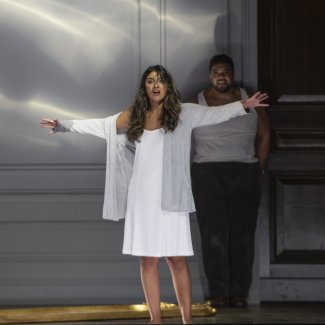
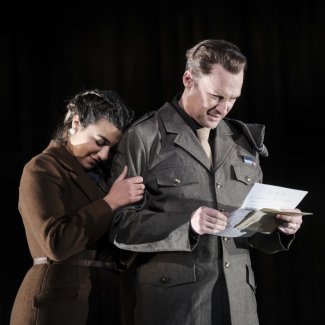
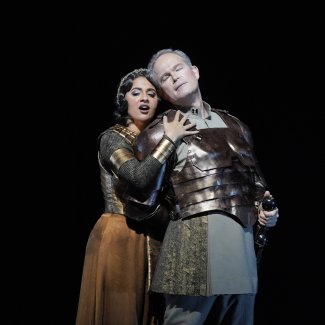
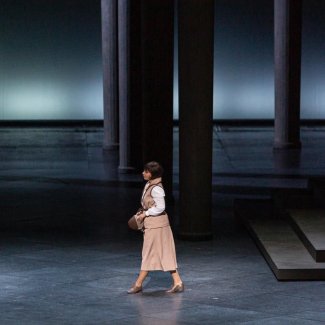
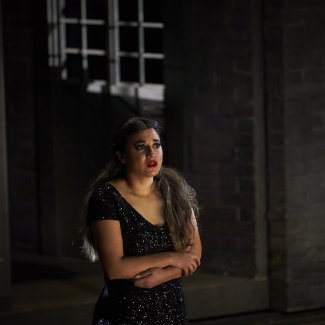
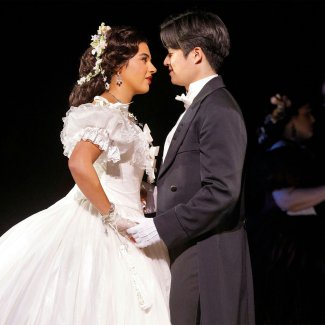
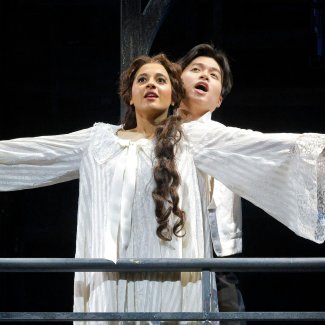
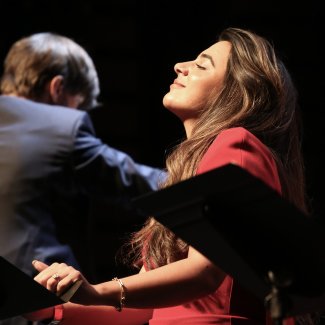

“And soprano Amina Edris in the role of Manon, who managed to show each stage of her character’s evolution… revealed the real woman behind the cliché. Her clear, fresh, sparkling singing in the first act, as in “Je suis encore toute étourdie”, then more assertive but still very girlish in “Je consens, vu que je suis bonne”, and finally wavering like a flower before falling in “Oui… Je puis encore être heureuse…”, continued to charm until the very last breath.”
“As Berthe, Amina Edris sang with beguiling sensitivity, unfailing accuracy and a tone of dark steeliness, bringing resoluteness and emotional depth to a character that can feel underwritten.”
“Berthe, as voiced by Amina Edris, matched her trills, vibrato and ornamentation perfectly in their final duet. Edris’s instrument focused like a pinspot, and she could also act.
“Between the full-bodied, luscious and colourful opening and the fresh, pure, fervent, ecstatic end, the psychological progression [as Thaïs] is painted with extraordinary skill.”
“Amina Edris and Pene Pati appear as doomed lovers, Mimi and Rodolfo. The two are exceptionally well-paired. Generously supported by de Souza and company, the Egyptian-born, New Zealand soprano elicits a profound measure of authenticity, tinting her performance with expressions of stunningly original pianissimo and meticulously considered tempi. Innocence given voice. Pati’s Rodolfo, by way of contrast, is all impetuousness and hyperbole and tumultuous counterpoint. The pair’s treatment of Puccini’s supremely affecting Act III duet, Dunque è proprio finita! (“So, it’s all over!”) soaring and bittersweet, is a moment not soon forgotten.”
“One couldn’t have hoped for a more appealing pair of lovers than Pene Pati and Amina Edris. The Samoan-born Pati possesses one of the most beautiful tenor voices I’ve heard in years. Egyptian-born Amina Edris’ lush lyric soprano is a joy, with warm timbre and natural trills. Unsurprisingly, they’re also a couple in real life, no doubt explaining how their chemistry is so intoxicating. The pair positively exude charisma, and Pati’s charm is life-affirming. Both are such convincing actors that it’s hard to take one’s eyes off them. The Act I sequence of “Che gelida manina”, “Sì, mi chiamano Mimì” and “O soave fanciulla” were moments of pure bliss.”
“Amina Edris demonstrated courage and dedication, with a delicate and elegant first act Je suis encore tout étourdie . In her De ella Adieu, notre petite table, her singing was generous in harmonics and with a tasteful phrasing that caught attention.”







